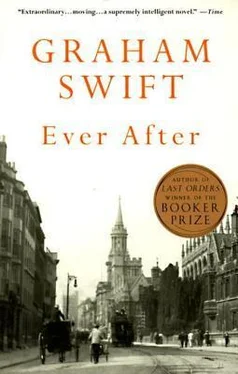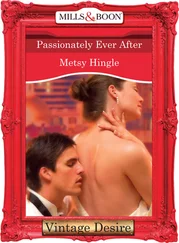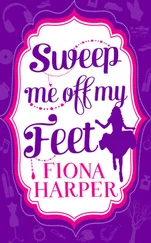How many times did I pass that window again? How many times was the blind cruelly drawn? Once — but this must have been at a later time of day and I must have been by then a fully-fledged truant, flâneur, voyeur —I passed a café at the further end of the same street, and there, sitting at an outside table, even in that midwinter chill (warm and pink from exercise), were my ballerinas. But no longer poised, living sculptures. They were little chattering mesdemoiselles -about-town, crossing their legs, nestling their chins into their scarves, responding boldly to the badinage of the waiter, blowing at the steamy froth on their chocolats chauds . I drew close, feigning interest in an adjacent shop-front. Glowing faces. A sound of female glee. Two eyes, in particular, beneath a dark fringe, which momentarily turned on me. Two pink lips, a flicking tongue adorned with the flakes of a croissant.
A crude case of my mother’s shop-window lusts? But I knew it was more than that. What enthralled me was the pathos, the dignity, the ardour of rehearsal . The sublime fact that in a world so in need of being sorted out, young girls of sixteen and seventeen (but, of course, to me, then, they were Women) could devote themselves so strenuously to becoming sugar-plum fairies.
Lift the axe! I wish I could have taken him, gripped his hand, as he gripped mine, suddenly, on that wet, chilly day as we emerged from the gloom of Les Invalides, stood him before that secret window and said: There, it’s for that that you are sorting out the world. I wish he could have gripped my hand more firmly still, come closer to me out of his remoteness; told me, warned me.
Paris first bred in me the notion that the highest aim of civilization is the loving perfection of the useless: ballerinas, café chatter, Puccini operas, Elizabethan sonnets, silk underwear, parfumerie, patisserie , chandeliers, the magic hush when the lights go down in an auditorium …
“Mimi! Mimi! Mimi!”
… and Romantic Love.
She actually cried, she actually wept in the seat beside me, dabbing her eyes and clutching my hand, while her lips mimed the arias.
Lift the axe! A Paris morning, in April. Perhaps that very morning I had peeped at my ballerinas. Morning turning to midday. Sunshine; pigeons; the smell of food. She is waiting beyond the gates of the école , though by now I am used to making my own way home. She is alone and somehow purposeful, fixed in her own space. She opens her arms and gives me an engulfing hug, as if I have returned from somewhere far away. But she is not smiling (or crying). She is composed and authoritative; the hug is like some solemn ceremony.
“Your daddy has had an accident, at his office.”
“An accident?”
“Your daddy has had an accident. And died.”
The second part of this statement, uttered unemphatically, almost perfunctorily, scarcely registered at first. Certain announcements take time to reach the brain.
“An accident with a gun.”
With a gun? With a gun ? What was he doing, in his office, in Paris, in the seventh arrondissement , in the centre of civilization, with a gun? A sudden, racing fantasy, a whole alternative life for my father, who was now dead, bloomed in my head. He was a spy, an undercover agent, he was on some hush-hush mission. It explained his distance, his absences, his resonant words about “adventure.” He bore the constant burden of secrecy and danger. For a while the delusion was so strong that it turned into a pang of regret: I had discovered this source of excitement too late — I could never, now, have access to it.
And perhaps it was this sense of deprivation, rather than the simple fact that my father was dead, that made tears rush to my eyes.
“Yes, my darling, you cry. Cry. Cry.”
And, opening her arms again, stooping, but unweeping, she crushed me against that warm, ready bosom, where Sam, by now, must already have been crushed many times.
She never used the word “suicide.” Perhaps I would not have known what it meant. Perhaps I guessed and only wanted, as she did, to gloss over the fact. It was Sam, in any case, who confirmed my suspicions. He and I were alone in the apartment. She had become a busy woman. I knew nothing about inquest proceedings, let alone in foreign cities. This must have been before she and I went back, the first time, with the body, to Berkshire.
I said, “He meant to do it, didn’t he?”
A bold, grown-up, not-to-be-evaded question.
“Yes, pal. I guess so.”
Later, it occurred to me that Sam might have been briefed to deal with this very point. But his brief, or his aptitude for it, only went so far. I was nine, he was twenty-four. Twenty-four seems now such a slender age — not so far from nine — but there was no doubt that during that time in Paris those fifteen years between Sam and me could be a wide gap to leap. Not so wide, it’s true, as the forty-six years between me and my father. Which gave Sam a distinct advantage in winning me over — along with the ability to slide into a boyish, big-brotherly familiarity quite beyond my father. But I always thought this was just a knack, an act for my benefit.
That morning, days after my father’s death, was the first time that it occurred to me, from the vantage of my own unlooked-for access of experience, that Sam really was, perhaps, just a kid. The fact that almost as big a gap of years existed between him and my mother as between him and me did not escape me. Once, on one of those tumultuous afternoons that seemed now to belong to another age, I had heard my mother simper, beyond closed, impassive doors, “Come on, Sammy, come to Mummy.…” I recalled it now, not recognising one of the least exceptional idioms of love. It was as though at the very point when Sam was most culpable, I both saw he was most innocent and discovered a new cause for enmity.
He took out a cigarette and I saw that his hand, his strong, young man’s hand, was shaking. He must have known I’d seen it.
“Why?” I said. The inevitable follow-up.
But “why” was not one of Sam’s words, the scrutiny of motives was not his strong point.
“I guess you’ll have to ask your mother that, pal.” He managed to light the cigarette and took a deep, steadying draw.
“I guess I’ll have to be looking after your mother now,” he added with a kind of feeble cheerfulness, as if the statement were half a question; as if he were watching his youth melt away.
I asked my mother. She was ready to be asked. I suppose there must have been some confabulation between them, a two-stage strategy. It was the moment, of course, for her to have broken down, wept, begged my forgiveness, confessed that her shamelessness had driven a man to his death. The things that happen in opera, they happen in life too. But she didn’t. She spoke calmly, almost dreamily.
“Perhaps there was something he knew that we shall never know.”
Which was, of course, a twisting round of the truth. It was we who had known something which he hadn’t known; or which he had known all along and could no longer pretend not to know. Her eyes hardened into a sort of warning whose meaning was clear: Don’t play the innocent, sweetie. If I’m to blame, then so are you. You were a party to this. You allowed it, didn’t you? You let it happen.
It was true: I might have gone to him at any time, like a true, a dutiful, a worthy son. Spilled the beans.
Then suddenly she smiled tenderly and took me in her arms. “Poor darling,” she said, as if I had fallen and grazed my knee; as if at the same time she thought this whole line of thinking was unnecessarily morbid. We were alive; my father was dead. She had taken Sam into her life. She had known what she was doing; she had made her choice. The fierceness, the frankness, of her will to live! She told me, many years later, with complete equanimity, how she had gone to see him in the mortuary. How his head was swathed in bandages, save his face. How they had even put a sticking-plaster over the hole in his temple. She had no squeamishness. No pity, no mercy. I think she even despised him for his death, which, for all its drastic convenience, was nonetheless cowardly, stupid, messy, extreme. She despised this man she had married, exploited, cheated — destroyed.
Читать дальше












